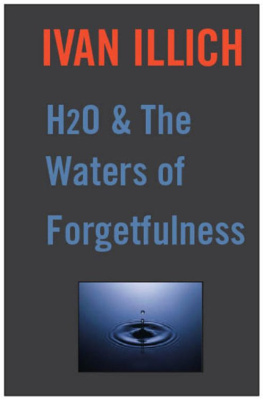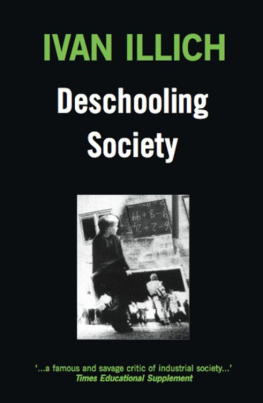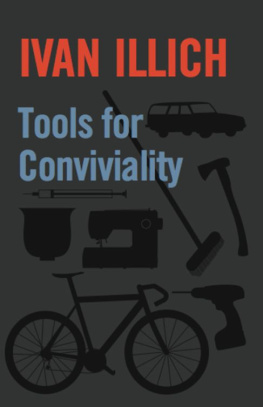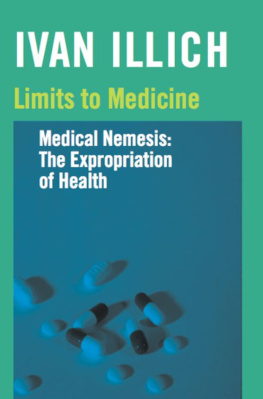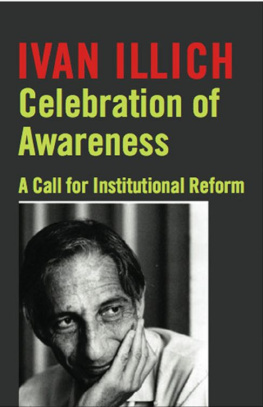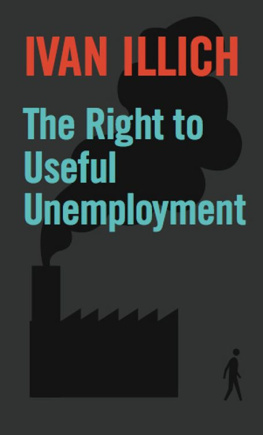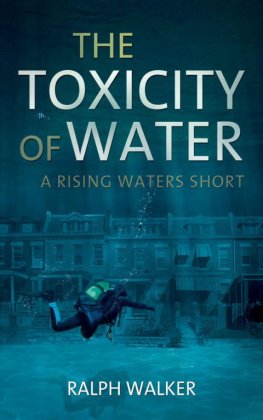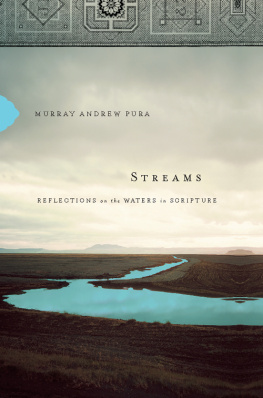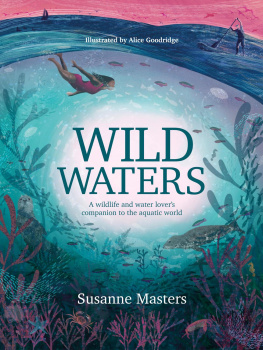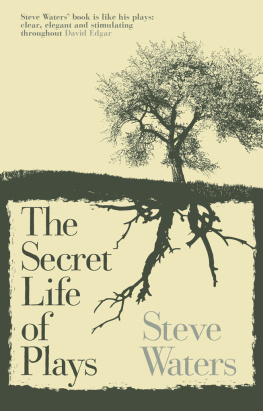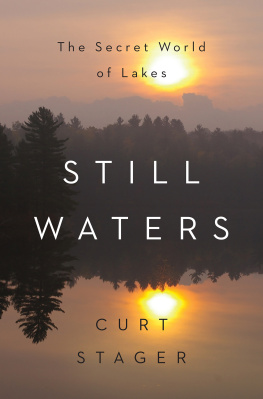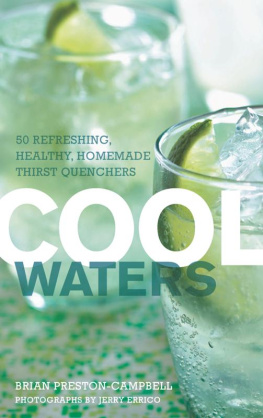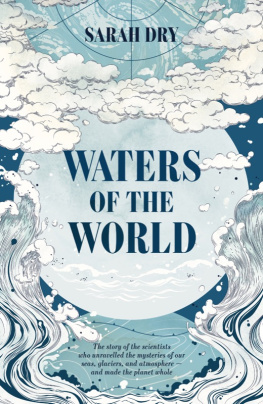In May 1984 Gail Thomas and her colleagues invited me to Dallas for a short lecture. I promised to correct my manuscript for publication, and it turned into this book. This book, however, is not based directly on the lecture but rather on a German version of it that Ruth Kriss-Rettenbeck has prepared. Only in another language and through her questions did I come to realize the potential that lay in my original text. I am grateful to The Dallas Institute of Humanities and Culture for printing the galleys of this book in time for a seminar on the Historical Heuristics of Body Images that I was then conducting with Barbara Duden. Susan Hunt has revised every line of my text and Beverly Hall gave shelter and assistance while I corrected the final manuscript. I admire Scott and Susan Dupree for their ability to typeset a book from my manuscript that resembled a quilt.
What the reader will find in these pages is literally an essay, an attempt: a text surrounded by glosses, tangents, and marginalia that I have added in the course of many conversations.
Dallas Town Lake
I understand that in Dallas during the last seventy years numerous citizen groups have urged the construction of a midcity lake. At the beginning of the century such a project would have amounted to a modest enterprise; now it has taken on the dimensions of an extravaganza. During 1984, yet another group of experts has been mulling over the technical feasibility and social acceptability of drowning a dozen midtown blocks. Proponents of the lake anticipate that it will irrigate business and fantasy, taxes and recreation; opponents consider the proposal an elitist misappropriation of public funds. Among the many arguments that have been raised, tabled, and warmed over for seven decades, one stands out. Both those who want to push and those who want to stop the lake imply that the natural beauty of a body of water would be morally uplifting to the civic life of Dallas.
TheNudeintheTub
The popular wisdom which holds that water possesses natural beauty and that this beauty has impact on civic morale is not always overtly expressed. However, you have only to poke fun at the belief in the civic magic of a body of water, and people react as if you had made a dirty joke. This, I claim, is so because water, which has always been perceived as the feminine element of nature, in the nineteenth century was tied to a new hygienic image of woman, which was itself a creation of the Victorian age. Only the late nineteenth century tied female nudity as a cultural symbol to the tap water of the bathroom. The proximity of suds and nude in the bath domesticated both water and flesh. Water became that stuff that circulates through indoor plumbing, and the nude became the symbol of a new fantasy of sexual intimacy defined by the newly created domestic sphere.
The intertwining of urban water and the nude constitutes one of the strands of a taboo woven to protect the symbolism of public water use from analysis. We may, for instance, debate quite openly our selection of the architect who will dress up the stuff that runs through Dallas pipes. We feel free to criticize the way he displays it, makes it dance or sparkle. But we do not feel free to question the natural beauty of water itself because we know, yet cannot bear to acknowledge , that this stuff is recycled toilet flush.
TheHistoricityofStuff
I want to question the beauty intrinsic to H2O because The Dallas Institute of Humanities and Culture has offered to make its own telling contribution to the dispute over Town Lake. We have been invited to discuss water and dreams insofar as they contribute to making the city work. The title of this conference was taken from a book just translated and published by members of the Institute. WaterandDreams was written forty years ago by Gaston Bachelard. It is one of a series of essays in which he analyzes the way we imagine matter, that stuff to which our imagination gives shape and form. I shall continue along the lines of Bachelards investigation , distinguishing stuff and its form, and reflect on the bond the imagination creates between two kinds of stuff from which a city is made: urban space and urban water.
The interrelationship between water and space may be explored on two different levels. The first deals with form. On this level comparison focuses on the common aesthetic features a periods imagination has given to urban water and to urban space. An epochs contribution to the style of their perception and representation is at the core of this approach to poetry or painting, sculpture or dreams. The question is How did baroque art use or show water? not What does the epoch believe water is? Water itself, on this first level, has no history; since the beginning, when the earth was unsightly and unfinished, water was H2O. According to this hypothesis all stories of creation from around the world tell about the origin of the same stuff, since the stuff as such is a-historical.
I do not intend to explore water in this fashionnor, for that matter, space or the imagined bond that unites them. From the start I shall refuse to assume that all waters may be reduced to H2O. I will not deal with city space as though it could be universally defined in terms of Cartesian coordinates or of census criteria. For not only does the way an epoch treats water and space have a history: the very substances that are shaped by the imaginationand thereby given explicit meaningsare themselves social creations to some degree.
I want to explore the historicity of matter, the sense that an epochs imagination has given to the canvas on which it paints its imaginings, to the silence of a room into which it projects its music, to the space that it fills with the aura that The attempt to do so is not new: and the evidence that it always fails is no reason for refraining from trying again, to write the history of lifes widow as Luis de Sandoval y Zapata, a seventeenth-century Mexican, calls this stuff in a baroque poem translated by Samuel Beckett.
To Primal Matter
Within how many metamorphoses,
matter informed with life, hast thou had being?
Sweet-smelling snow of jessamine thou wast,
and in the pallid ashes didst endure.
Such horror by thee to thyself laid bare,
king of flowers, the purple thou didst don.
In such throng of dead forms thou didst not die,
thy deathbound being by thee immortalized.
For thou dost never wake to reasons light,
nor ever die before the invisible
murderous onset of the winged hours.
What, with so many deaths art thou not wise?
What art thou, incorruptible nature, thou
who hast been widowed thus of so much life?
WaterasStuff

